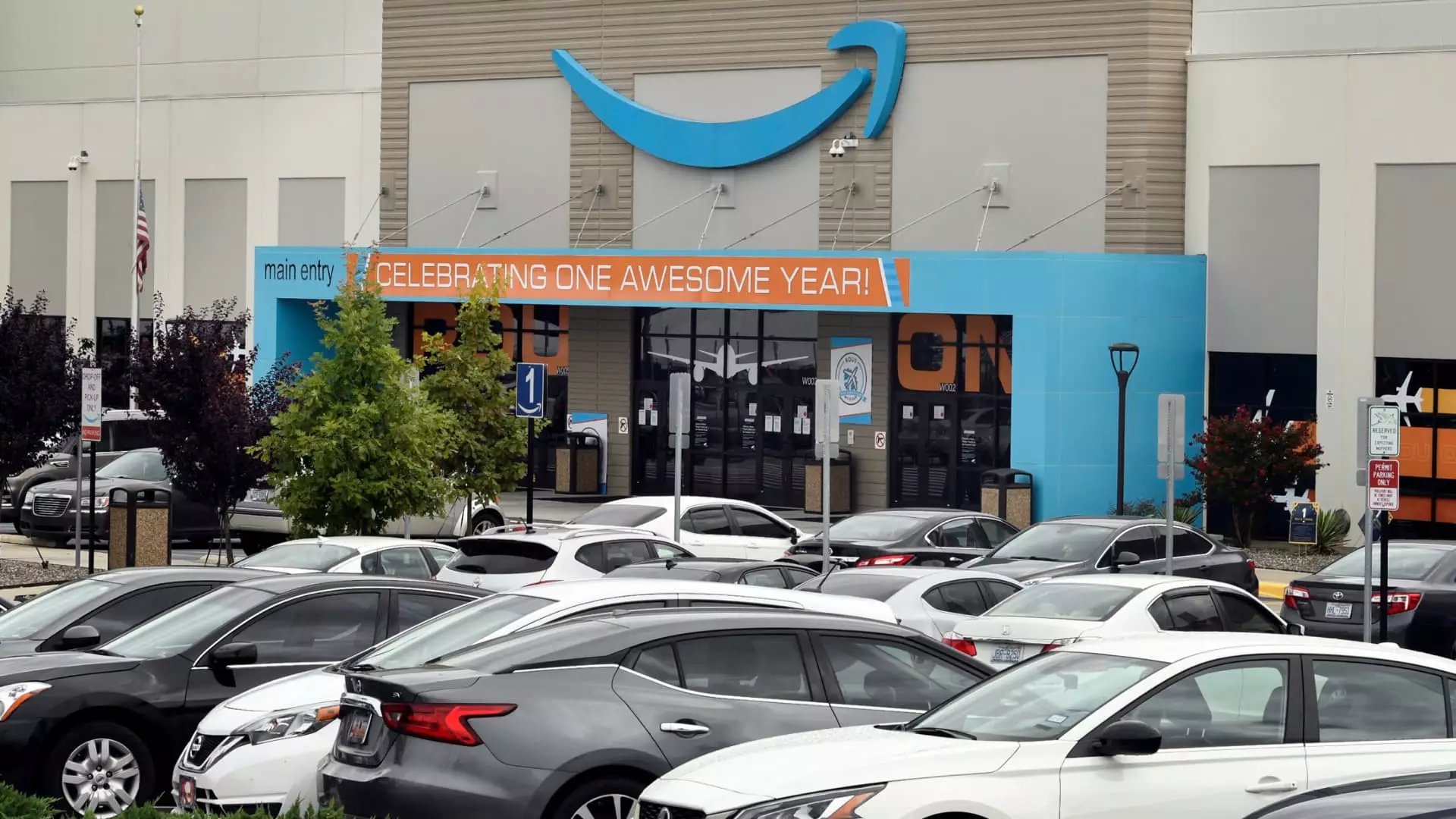The recent election at Amazon’s RDU1 facility in Garner, North Carolina, revealed deep-seated tensions between corporate power and worker rights. As the results unfolded, a significant majority of the 3,276 votes cast were against unionization—2,447 voting ‘no’ while only 829 supported the initiative. In the wake of this outcome, the implications for workers striving for better conditions and rights at Amazon are profound, especially in light of a concerted campaign by the Carolina Amazonians United for Solidarity and Empowerment (CAUSE).
This election was not an isolated event but rather a culmination of three years of organizing efforts spearheaded by CAUSE, a group founded in 2022 to address concerns regarding workplace conditions, especially during the COVID-19 pandemic. With 4,700 workers employed at the RDU1 facility, the election presented a significant opportunity for workers to forge a collective path towards improved conditions. However, the overwhelming rejection of unionization raises questions about the effectiveness of grassroots efforts within an organization as vast and powerful as Amazon.
The National Labor Relations Board (NLRB) is set to certify the election results, though the process might feel frivolous to many when contrasted against the stakes involved. The narrow margin of 77 challenged ballots—insufficient to alter the outcome—highlights both the divided sentiments among workers and the outside pressures influencing their decisions. Even within a relatively progressive labor landscape, the defeat faced by CAUSE begs deeper analysis into the barriers that persist in securing worker rights in the current corporate environment.
The narrative from CAUSE puts a spotlight on the alleged retaliatory practices employed by Amazon. The group claims that Amazon’s “relentless and illegal efforts to intimidate” workers were instrumental in shaping the election’s outcome. They argue that the company’s strategy aimed to instill fear, demonstrating a hostile environment for those advocating for change. However, Amazon spokesperson Eileen Hards firmly denied these allegations, asserting that the organization abided by labor laws and asserting that the election confirmed the preference of employees to maintain a direct relationship with the company.
This dichotomy between Amazon and CAUSE raises essential ethical concerns about labor practices in American corporations. The fact that CAUSE was portrayed as an “outside party” by Amazon only serves to marginalize the voices of workers who sought representation. As workers expressed their desire for safer working conditions and fair compensation, Amazon reinforced a boundary that kept employee grievances at bay, potentially stifling essential discourse about workplace rights.
The defeat at RDU1 happens against a backdrop of rising labor activism across the United States, with 67% of Americans reportedly expressing support for unions, according to Gallup. Yet, despite this favorable public perception, union membership within the private sector has diminished to a troubling 5.9% as per the Bureau of Labor Statistics (BLS). This paradox prompts critical questions: Why has support not translated into increased membership, particularly in non-unionized workplaces like Amazon?
Further complicating the landscape, North Carolina ranks among the states with the lowest union membership rates—recording a dismal 2.4%. As labor leaders aim to broaden their influence beyond the traditional union election pathways, they are turning to non-traditional organizing tactics. This includes filing unfair labor practice charges against Amazon, utilizing solidarity pickets, and collaborating with other labor organizations like the International Brotherhood of Teamsters.
These strategies reflect a growing recognition that the labor movement must adapt to contemporary challenges, especially those posed by multinational corporations with significant resources at their disposal. Organizers are attempting to create community solidarity and work through the barriers established by corporate entities, illustrating an evolving understanding of labor rights as an essential public interest.
The recent vote rejecting unionization at Amazon’s RDU1 facility is a stark reminder of the barriers that workers face in advocating for their rights and wellbeing. It serves as a reflection of the broader challenges present within the labor movement, emphasizing the need for sustained organizing efforts at the grassroots level. As CAUSE and similar groups continue their fight for better working conditions, the underlying themes of resilience and determination among workers remain integral to the ongoing struggle for fair labor practices.
The outcome of the election at the RDU1 facility should serve as a catalyst for renewed advocacy and organizing. As labor movements evolve to meet the demands of modern workers, they must recognize the necessity of adapting strategies while harnessing public support. Ultimately, the fight for workers’ rights is far from over, and it will take collective will and determination to forge a path toward meaningful change in corporate America.

